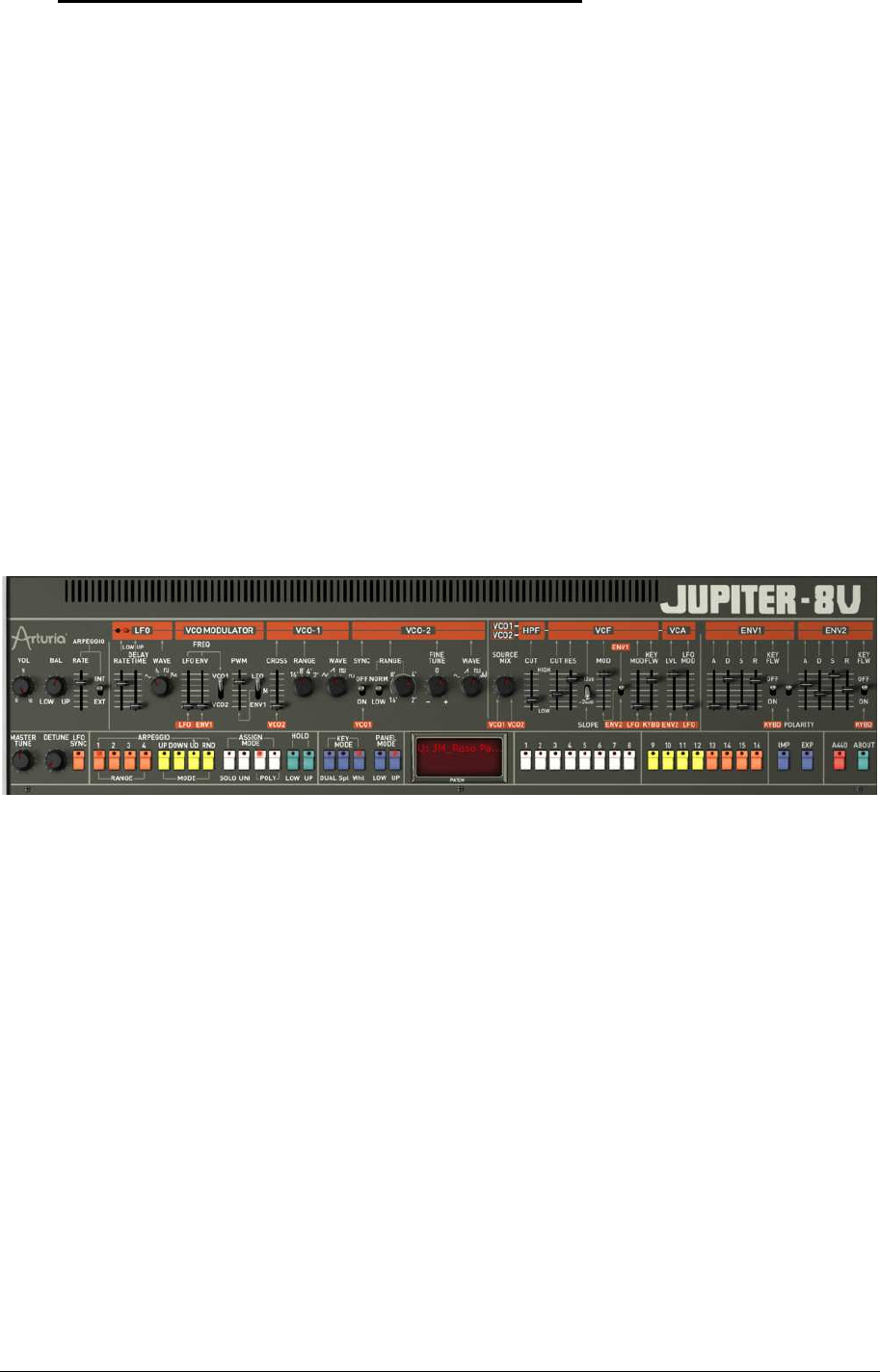
ARTURIA – JUPITER-8V – USER’S MANUAL
30
4.4 O
VERVIEW OF THE
J
UPITER
-8V
USER INTERFACE
The interface of the Jupiter-8V has 54 synthesis parameters and a programmer that
allows you to navigate quickly through the 44 factory presets of the original machine.
The knobs and associated switches to these parameters will allow you to create a nearly
infinite variety of sounds.
These parameters consist of:
• 2 oscillators (VCOs) that deliver the basic audio signal thanks to the waveforms and
allow the tuning of the sound (the frequency). VCO1 can produce triangle, saw tooth,
variable pulse or square signals while VCO2 can produce sine, saw tooth, variable
pulse or noise signals.
• A mixer to mix the 2 VCO’s
• A non resonant high pass 6 dB/oct filter
• A resonant low pass 12/24 dB/oct filter
• An LFO
• 1 amplifier (VCA) allowing amplification of the signal between the filter to the stereo
output.
• Two envelopes (ADSR) to modulate the low pass filter and the VCA
The synthesis parameters
See how to quickly create a polyphonic sound with the Jupiter-8V:
To be able to understand the principle of how to program the Jupiter-8V, we will take a
very simple sound. Select the preset “UJ Brass» in the bank “KUJIIE” / “Brass”. The
synthesis structure of this sound is relatively simple: the sawtooth waveforms of VCO 1
are 2 are active and their signals are directed through the low pass filter. Afterwards the
signal is routed through the mixer, and finally into the amplifier. An ADSR envelope
modulates the cutoff frequency of the filter and a second ADSR envelope modulates the
volume of the amplifier.


















